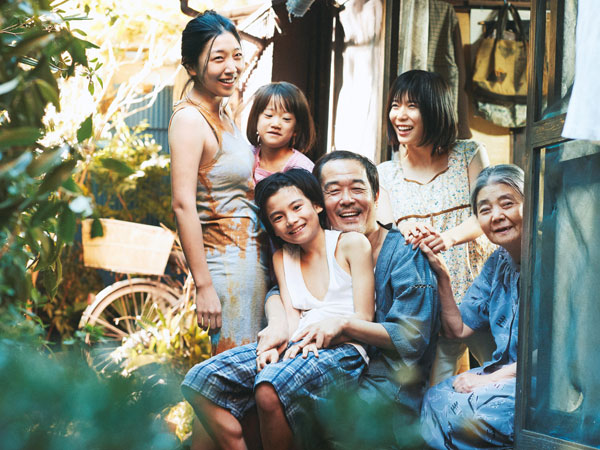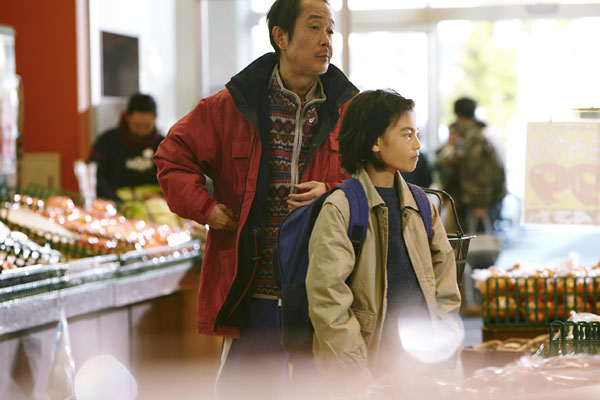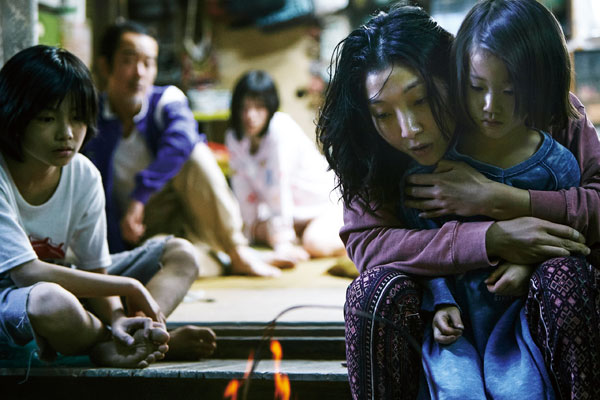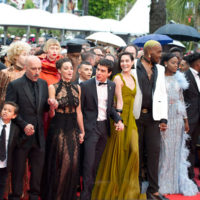
Spike Lee et l’équipe de Black Klansman ©YesICannes.com
The Festival de Cannes saw on May 14 the return of two great directors, accustomed to La Croisette: Spike Lee with Black Klansman (USA) and Lars Von Trier – so far “persona non grata” at the Festival – with The House That Jack Built. Yesterday, Shoplifters by Japanese filmmaker Hirokazu Kore-Eda, spoke of the strength of the bonds that unite the members of a family, legitimate or chosen.
In Black Klansman, Spike Lee tells the story of Ron Stallworth in Colorado Springs, the first Afro-American detective to conduct an undercover investigation of the KKK in the 1970s, sabotaging several actions of the hate group. The House That Jack Built marks the return of the talented Danish director Lars Von Trier, Palme d’Or in 2000 for Dancer in the Dark, who after his unwelcome remarks about Nazism in 2011, received a red card from the management of the Cannes Film Festival.
Also accustomed to the Croisette, with eight films selected, including six in competition, Hirokazu Kore-Eda staged in Shoplifters a clan of friendly thieves who take in a little girl abused by her parents.

La famille Shibata – Courtoisie Festival de Cannes
An intimate and warm home
Returning on a cold winter evening after shopping, (read: after shoplifting the items), Osamu (Franky Lily) and his son Shota (Kairi Jyo) see under a house a scared little girl who seems left on her own. The family takes in the little girl and comforts her. And this happy family, who seems to have all it needs to eat despite poverty, meager wages and petty theft to survive, gives Juri (Miyu Sasaki), an adorable little girl covered in bruises and fearful, an intimate and warm home, where the atmosphere is often one of exuberant disorder. And especially some loving. Juri then chooses this family a little on the fringe of the society while the authorities are looking for her, believing that her parents killed her.

Franky Lily & Kairi Jyo – Courtoisie Festival de Cannes
Original aspects of Japan
The tasty moments of family members reveal original aspects of Japan: the father, apart from his work hours on a construction site, is shoplifting with his son – and soon with the little girl, Hatsue, the grandmother (Kilin Kiki) pays homage to her late husband at her son-in-law’s home to raise some money, the mother Nobuyo (Sakura Ando) who works in a laundry, is pocketing the items found in the clothes, and the girl Aki (Mayu Matsuoka) is workig in peep-shows before cajoling fragile and shy men. In the “shared work” that make precarious the world of workers and employees, the family responds with its version of the shared work: they join forces to better steal.

©2018 Fuji Television Network/Gaga Corp/AOI Pro. Inc.
The links of the heart
In Shoplifters, Hirokazu Kore-Eda, continues in the vein of Nobody Knows, to explore what constitutes a family, and the strength of the bonds that unites them and gives them the strength to face the everyday life. Moreover, the question arises: if one chooses one’s family, are the links of the heart not much more important than the bonds of blood? Can the family still ensure the cohesion of Japanese society in the rapid evolution of the modern world and technology? The charming and heartbreaking story of Shoplifters with a big heart, ready to sacrifice for each other, juggling between melodrama and social film without becoming pathetic, remains the most beautiful answer.

©2018 Fuji Television Network/Gaga Corp/AOI Pro. Inc.
Hirokazu Kore-Eda is a recipient of the 2013 Jury Award for Like Father, Like Son and Yuri Yagira’s Award for Best Actor for his role in Nobody Knows, 2004.
Shoplifters by Hirokazu Kore-Eda
2h – Couleur

©YesICannes.com
The Red Carpet of Black Klansman de Spike Lee
Click to enlarge – © YesICannes.com – All rights reserved
- Riley Keough & Matt Dillon – Courtoisie du Festival de Cannes


























































































Recent Comments